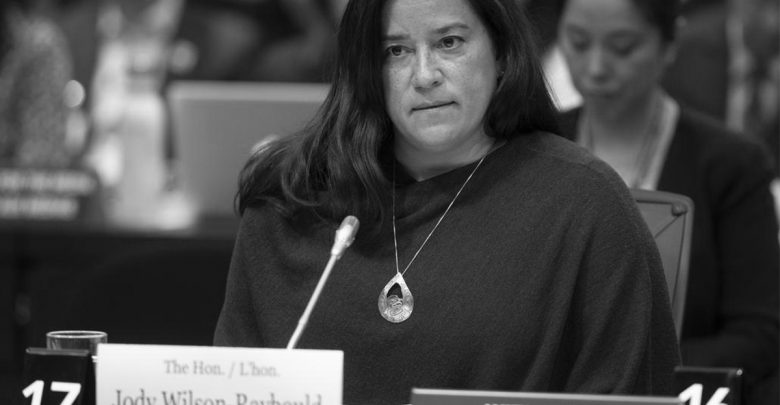 The Cana
The CanaLast week, Jody Wilson-Raybould and Jane Philpott were expelled from the Liberal caucus after Wilson-Raybould released a secretly-recorded phone call regarding the all-consuming SNC-Lavalin scandal.
While some may argue that Wilson-Raybould proved she was untrustworthy by recording the phone call, her expulsion from the Liberal caucus suggests a much more sinister truth about Justin Trudeau and the Liberal Party. Trudeau calls himself a feminist and a pro-Indigenous rights politician; his recent actions suggest that these labels are more campaign feel-good rhetoric than actionable, policy-influencing mandates.
Firstly, the released phone call, which would have been indisputably inappropriate in most contexts, is defensible in this situation. Wilson-Raybould felt unduly pressured and took action to keep herself safe, a situation that many women have likely been in one too many times. Even if recording the phone call did make Wilson-Raybould “untrustworthy,” since she was Attorney General at the time of the recording, she has since resigned from Cabinet. As a regular Member of Parliament, the release of the call would not make her an untrustworthy member of the Liberal Party. As long as the Liberals could trust Wilson-Raybould to vote with them on major policy issues and support their budget, there was no reason to expel her.
The mantra “let her speak” has become somewhat of a feminist call-to-arms in defense of Wilson-Raybould since the breakout of SNC-Lavalin. While she was eventually allowed to testify, her expulsion shows just how uncomfortable Trudeau is with women who speak up fully and without limitation. It was acceptable for Wilson-Raybould to speak when sanctioned by the government; however, as soon as her voice began to threaten Trudeau’s government, she had to be expelled.
This type of gaslighting and mistreatment of women is common, especially among men who purport to be “allies.” Trudeau, who once touted his gender-balanced cabinet as a sign of his support for strong women in politics, has left that ideology behind. Typical of a white man from financial privilege, his support for women only extends to women who do not threaten his own grasp on power.
It is worth noting that this week, many Daughters of the Vote — women who go to Ottawa for a week to communicate their vision for the country and learn about careers in politics — walked out of the House protesting Wilson-Raybould’s expulsion. This action shows many young, politically engaged women disagree with how Trudeau has handled Wilson-Raybould’s case.
The same can be said of Trudeau’s attitudes towards Indigenous peoples. Trudeau spearheaded an apology to Newfoundland’s Indigenous peoples about their mistreatment and the legacy of settler-colonialism. But rather than support an Indigenous woman in his party when she felt pressured by his office, he attempted to limit her voice, first from testifying at all, and now by reacting disproportionately to her release of the phone call. Trudeau may like to present himself as an ally, but he seems to only have room for women who support his party’s agenda and hold on government.
While this does not negate the good he has done for women and Indigenous peoples while in office, it is worth noting that “ally” is a verb and not a noun. Being an ally requires continued action, but most importantly it involves supporting and uplifting the voices of marginalized people, not silencing and speaking over them.
Regardless of one’s opinions on Wilson-Raybould’s release of the phone call or the SNC-Lavalin scandal at large, it is alarming to see this trend of gaslighting and silencing women in the Liberal Party. Coming from the man who just this past summer was accused of groping a woman without consent and merely said, “I do not remember any negative interactions,” this suggests that Trudeau needs to seriously reconsider his definitions of feminism and allyship.




